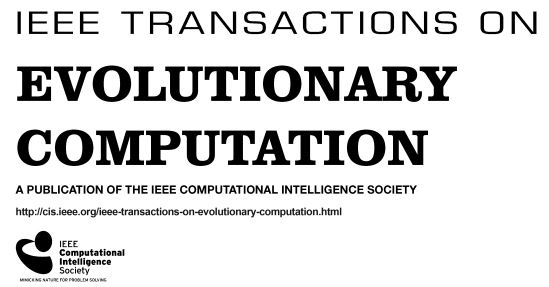LLaMEA: A Large Language Model Evolutionary Algorithm for Automatically Generating Metaheuristics
IF 11.7
1区 计算机科学
Q1 COMPUTER SCIENCE, ARTIFICIAL INTELLIGENCE
引用次数: 0
Abstract
Large language models (LLMs), such as GPT-4 have demonstrated their ability to understand natural language and generate complex code snippets. This article introduces a novel LLM evolutionary algorithm (LLaMEA) framework, leveraging GPT models for the automated generation and refinement of algorithms. Given a set of criteria and a task definition (the search space), LLaMEA iteratively generates, mutates, and selects algorithms based on performance metrics and feedback from runtime evaluations. This framework offers a unique approach to generating optimized algorithms without requiring extensive prior expertise. We show how this framework can be used to generate novel closed box metaheuristic optimization algorithms for box-constrained, continuous optimization problems automatically. LLaMEA generates multiple algorithms that outperform state-of-the-art optimization algorithms (covariance matrix adaptation evolution strategy and differential evolution) on the 5-D closed box optimization benchmark (BBOB). The algorithms also show competitive performance on the 10- and 20-D instances of the test functions, although they have not seen such instances during the automated generation process. The results demonstrate the feasibility of the framework and identify future directions for automated generation and optimization of algorithms via LLMs.LLaMEA:自动生成元搜索的大型语言模型进化算法
本文章由计算机程序翻译,如有差异,请以英文原文为准。
求助全文
约1分钟内获得全文
求助全文
来源期刊

IEEE Transactions on Evolutionary Computation
工程技术-计算机:理论方法
CiteScore
21.90
自引率
9.80%
发文量
196
审稿时长
3.6 months
期刊介绍:
The IEEE Transactions on Evolutionary Computation is published by the IEEE Computational Intelligence Society on behalf of 13 societies: Circuits and Systems; Computer; Control Systems; Engineering in Medicine and Biology; Industrial Electronics; Industry Applications; Lasers and Electro-Optics; Oceanic Engineering; Power Engineering; Robotics and Automation; Signal Processing; Social Implications of Technology; and Systems, Man, and Cybernetics. The journal publishes original papers in evolutionary computation and related areas such as nature-inspired algorithms, population-based methods, optimization, and hybrid systems. It welcomes both purely theoretical papers and application papers that provide general insights into these areas of computation.
 求助内容:
求助内容: 应助结果提醒方式:
应助结果提醒方式:


